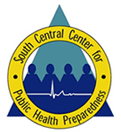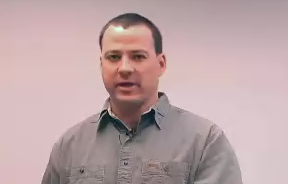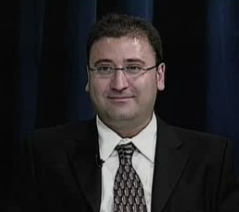
Explosion and Blast Injury
Course Description:
Explosions can produce unique patterns of injury seldom seen outside combat. When they do occur, they have the potential to inflict multi-system, life-threatening injuries on many persons simultaneously. The injury patterns following such events are a product of the composition and amount of the materials involved, the surrounding environment, delivery method (if a bomb), the distance between the victim and the blast, and any intervening protective barriers or environmental hazards. Because explosions are relatively infrequent, blast-related injuries can present unique triage, diagnostic, and management challenges to providers of emergency care.
Few health professionals in the United States have experience with explosive-related injuries. Vietnam-era physicians are retiring, other armed conflicts have been short-lived, and until this past decade, the United States was largely spared of the scourge of mega-terrorist attacks. As the risk of terrorist attacks increases in the U.S., disaster response personnel must understand the unique pathophysiology of injuries associated with explosions and must be prepared to assess and treat the people injured by them. This online course introduces information relevant to the care of casualties from explosives and blast injuries.
Target Audience
Academic Faculty/Staff, Federal Government Employees, State Government Employees, Local Government Employees, Non-Government Employees and Students
Learning Objectives
- Describe the epidemiological characteristics of bombings in the United States
- List and briefly describe major bombing incidents
- Distinguish the different types of explosives
- Discuss the mechanism of injury from explosives
- Describe the different types and clinical aspects of blast injuries
- Discuss the specific medical management of blast injuries
Instructor:

Todd B. Brown MD, MSPH, FACEP
Dr. Brown is an Assistant Professor in the University of Alabama at Birmingham’s (UAB) Department of Emergency Medicine (DEM), Director of the DEM Office of Research, and an Associate Scientist in the Center for Emerging Infections and Emergency Preparedness (CEIEP). Prior to joining UAB, Dr. Brown’s experience includes service as an active duty US Air Force Flight Surgeon with field deployment experience to Southwest Asia and Europe. During this time he was instrumental in developing the medical response initiative for the annual Andrews Air Force Base Air Show and additional disaster response plans, including plans for natural and man-made disaster and mass-casualty incidents. For his service, Dr. Brown was nominated as the Outstanding Flight Surgeon of the Year and was awarded the Air Force Achievement Medal and the first Oak Leaf Cluster. After residency training and board certification in Emergency Medicine, Dr. Brown completed a research fellowship at UAB where he earned a MSPH in Clinical Research through the SOPH and a NIH funded Resuscitation Sciences fellowship through the UAB Resuscitation Outcomes Consortium (ROC). Dr. Brown has been the principal investigator on several resuscitation-related trials and is a funded investigator on the ROC. Additionally, through his work with the CEIEP he is active in teaching the face-to-face offering of this course, “Explosion and Blast Injury”, to healthcare professionals throughout the state of Alabama. Dr. Brown remains a central part of the UAB clinical and educational community through his involvement in resident and medical student education. He is active in the residency program through lectures and bedside teaching, as well as serving as an advisor to Emergency Medicine residents. Furthermore, he is the local pioneer of an undergraduate research course designed to expose prospective medical students to the world of clinical research.

Ziad Kazzi, MD, FAAEM
Born in 1975 and raised in Beirut, Lebanon, Dr. Kazzi graduated with honors from the American University of Beirut College of Arts and Sciences in 1995 and from the American University of Beirut Medical School in 1999. He trained in Emergency Medicine at Emory University in Atlanta (2000-03) where he served as a chief resident before completing a subspecialty fellowship in Medical Toxicology at Emory University and the Centers for Disease Control and Prevention (CDC) in Atlanta. Dr. Kazzi joined the Department of Emergency Medicine at the University of Alabama at Birmingham (UAB) in 2005 at the rank of Assistant Professor and currently serves as the Co-director for the UAB Center for Emerging Infections and Emergency Preparedness and Medical Toxicologist for the Regional Poison Control Center in Birmingham, UAB, and the Children’s Hospital of Alabama. He is board certified in both Emergency Medicine and Medical Toxicology.
As an emergency physician and toxicologist, Dr. Kazzi specializes in the recognition, triage, and management of poisonings and holds a deep interest in community environmental health and public health preparedness. Subsequently, he is currently a guest researcher in the radiation studies branch at the CDC and a state-wide educator on the face-to-face offering of this course, “Explosion and Blast Injury.” Over the past two years, he has collaborated with the Alabama Department of Public Health, the Center for Domestic Preparedness, and the CDC on multiple emergency preparedness projects. His contributions include an improvised new drug application for the treatment of Acute Radiation Syndrome, recommendations to policy makers regarding available radiopharmaceuticals, and educational activities such as webcasts, roundtable discussions, and didactics offered to healthcare workers and emergency responders in emergency preparedness. Other ongoing research includes surge capacity, pandemic influenza, and hospital preparedness regarding potential terrorist or Hazmat incidents.
During the past 4 years, Dr. Kazzi has been active in public health preparedness and will continue to do so by participating in community and hospital-based research, planning, and educational activities.
Available Credit
- 4.00 Participation/CETulane Professional and Continuing Education (PaCE) awards 4.00 hour(s) of credit for completing Explosion and Blast Injury
Price
Required Hardware/software
System Settings
This course is designed to work most effectively if your computer and internet connection meet certain minimal requirements. This course can be accessed using a Windows 10 PC or a Mac with High Sierra1, Mojave, or Catalina. Pop-up blockers should be disabled when viewing the course. Internet Explorer 11 (for Windows 10), or the current version of Google Chrome, Mozilla Firefox, or Apple Safari (for Windows 10 and or Mac) is required. Many of our courses require Java and JavaScript enabled.
Links to External Websites
Links to websites outside this course will open in a new window or tab. Some browsers may minimize the course window. If this occurs, maximize the course window to return to the course.
Adobe Acrobat Reader (for desktops and laptops)
Adobe Acrobat Reader is required to access some documents in this course. If you need to download a free copy of Acrobat Reader, click here.
Internet Connection Speed
A minimum download speed of 1.5 Mbps is recommended for an optimal experience, which is commonly the speed associated with a basic DSL or a cellular/satellite connection. A faster connection, such as cable or fiber service, with further enhance your online experience. A Wi-Fi connection is generally acceptable, but it is dependent upon one of the two services mentioned above. You can check your internet connection speed at http://www.speedtest.net/.

 Facebook
Facebook Twitter
Twitter LinkedIn
LinkedIn Forward
Forward